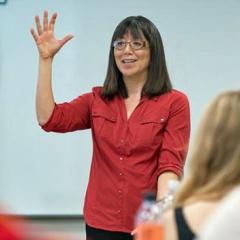Martha Matsuoka: Ports and goods movement in Los Angeles
Dr. Martha Matsuoka is an Associate Professor in the Urban and Environmental Policy Department at Occidental College in Los Angeles, California, where she is also the Executive Director of the Urban & Environmental Policy Institute. She focuses her teaching and research on environmental justice, community-based regionalism, sustainable community development, and social movements. Her current research focuses on policy, planning, organizing, and advocacy related to ports and goods movement.
Much of her work is bearing fruit today from seeds sown in the past. Her work with the Clean Up Green Up campaign, for example, used three pilot projects to get the city of Los Angeles to pass the first ordinance to establish Environmental Justice Zones, the goal of which is to prevent new polluting uses from coming into existing neighborhoods, channel resources to clean up existing polluting industries, and generate city resources to revitalize the neighborhoods. This model is now being used up and down the state.
The Port of Los Angeles Work Group of the Green LA Coalition has grown tremendously and become part part of a larger national network, the Moving Forward Network with fifty member organizations including community based groups, scientists, labor, advocate groups, and others. The network launched the #ZeroEmissionsNow campaign to get the EPA to require ports and freight facilities to meet clean air standards so that diesel emissions are eliminated. While the EPA adopted the recommendations in the final weeks of the Obama administration, their future under President Trump is unclear.
For Matsuoka, the idea of doing advocacy work from within an academic setting is a natural fit. She says it is important to have a research-based model, to work with community partners, and to develop projects or curriculum the community-based organizations can use. At the same time, it is critical to retain some level of academic distance so that the researcher’s objectivity is not compromised.
Her institute’s mission is to do advocacy work, and so all internal conversations include this component. Nevertheless, she says, she makes sure her researchers are not in front of the advocacy but rather responding to the need for scientific exploration of topics.
